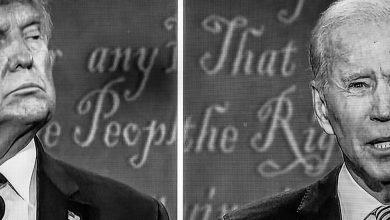Today’s Faux Pas, Tomorrow’s Lingua Franca

We think we know more than those who came before. Our impressions are novel, ours are the way ahead.
But people way back, despite how quaint they might seem to us now, felt the same way we do. E.L. Doctorow got this just right in “The Waterworks,” set in the Gilded Age in New York City, in which the story’s narrator reminds us early on: “You may think you are living in modern times, here and now, but that is the necessary illusion of every age. We did not conduct ourselves as if we were preparatory to your time. There was nothing quaint or colorful about us.”
And yet just as that waistcoated, mutton-chop-whiskered, horse-drawn New York looks antiquated, if charming, to us now, we, too, in many of our takes on things (not to mention our attire) will look quite antique and peculiar before we know it.
This occurred to me when I was recently referred to a piece about language from 1946. It was by one of the intellectuals I most revere, Jacques Barzun. He was a historian (as if one academic classification could describe this mega-intellectual Renaissance man) at my own Columbia University during much of the 20th century, a career that included helping develop Columbia’s Great Books courses — the same curriculum I wrote about last month. He lived an unusually long life, dying at 104 in 2012, and was vigorously productive until close to the end.
And speaking of Great Books, one of the 10 greatest books I’ve ever known is one Barzun finished in his 90s, “From Dawn to Decadence: 1500 to the Present — 500 Years of Western Cultural Life.” This survey of Western intellectual history has left me in utter awe for years now, and eternally influenced my writing style, my bookshelf and my worldview. One must revisit it yearly along with one’s photo albums, cherished recipes, and either Coltrane or Brahms depending on mood (maybe I’m getting a little specific).
But visiting Barzun in his 1946 review, in The Atlantic, of H.L. Mencken’s “The American Language,” a survey of American English words and expressions, and their history, was an education. Reading Barzun on Mencken reminded me that if the only reason we disapprove of something people are saying “these days” is that we just find it off-putting for reasons more of the stomach than the head, then we should consider a test: Could we defend our disapproval 100 years from now, to people who never knew an English without it, and are perplexed that people of our time found it unpleasant? Potential candidates for this test include the expression “I could care less” and using “impact” as a verb synonymous with “affect” (which, I’ve learned, The Times’s stylebook frowns on).
In the review, Barzun shows that he’s an academic of easygoing, demotic leanings, celebrating assorted developments in English grammar that others at the time (and today) dismiss as decay. Alongside his erudition, he loved popular culture, including baseball, and in keeping with that real-world touch, approved of Mencken’s celebration of various American vernacularisms, noting that “preferring aint I? to the prissy am I not?, getting rid of whom and accepting he dont (with no apostrophe in this or similar contractions) would really be ‘modernizing’ in a fashion tolerably practical and democratic.” He also saw the logic in dropping the “-ly” in forms such as “rest easy” and “drive slow.”
To know Barzun as a solon, so deeply knowledgeable about the antique and the classical, is to be somewhat surprised by this catholicity about grammatical constructions — people of his stripe tend to be more conservative about matters of language and expression. And I, at least, am thrown by his opinions about language beyond this. He wrote, on the one hand, that “vernacular grammar not only simplifies; I also think its reasoned acceptance would teach us something about the genius of the language.” OK. But he then appends that this genius is “obscured by our shoddy and excessive word-making.” And what exactly did he find shoddy and excessive in this regard?
Words. It was isolated words he found inutile, if not offensive, and here are some: “evaluate,” “absenteeism,” “finalize,” “directive,” “to implement” and “cheeseburger.”
To Barzun, an endlessly granular and elevated vocabulary — an encyclopedic knowledge of the dictionary — wasn’t the point. Rather: “To trust to the digestive powers of usage alone seems, in these conditions, rather too blithe. It amounts to fatalism, a gay and even perverse fatalism, since its adherents call any attack on these parasitic growths meddlesome and inimical to ‘life’ — as if life in a language were not simply the power to remain intelligible over wide areas and reasonably long periods of time.” Fair enough.
But he felt that there were grounds for pruning English of certain words as almost vulgar in their unnecessariness, at least in his view. For example, he considered “absenteeism” a word “misused” when describing “absences from work,” even though if anything today, this is the readiest association the word elicits. As to “evaluate,” he disliked that it was used for “everything at every turn,” which reminds me of a caller to a radio show that asked listeners which words most annoyed them in 2021. The caller chose “algorithm” because it seems to be used so often for so many subjects. In other words, he was merely weary of hearing it.
Intriguingly, Barzun, brilliant and insightful though he was, saw his take on constructions and expressions such as “he dont” as compatible with his contrasting take on isolated words such as “evaluate.” “Oddly enough,” he wrote, “the same Americans who do not hesitate to confuse, misuse, duplicate, and miscegenate words remain absurdly conventional about grammar.” For Barzun, “he dont”? Yes. “Evaluate”? No.
The last thing I intend is to single Barzun out for judgments on language that don’t stand the test of time. I found his article interesting only as a demonstration of a pattern, exemplified by legions in the past and legions even now, including me.
Go back to 18th century and Robert Lowth, an Anglican bishop and pioneering grammarian of the English language, wrote what he intended as a guide to proper usage, including “spitten” as the past participle of “spit,” as in “I have spitten.” How usable is that now? A century later, Richard Grant White was seen as an authority on how to write and speak. Among the words he didn’t like was “standpoint.” But when you boil down his reasoning, it was because when you said it you weren’t actually standing anywhere!
We are all, always and forever, all but unable to see ourselves from a distance and perceive how trivial that which irks us is in the grand scheme of things, that scheme which is so hard to see or feel.
And for all that we may think that we get that, we ought to evaluate quite carefully the commonly enumerated — nay, lamented — language pet peeves that I so often hear about, such as the verb “liaise” inferred from the noun “liaison.” We must reassess any discomfort with those who refer to “ex-presso” instead of mimicking the Italian pronunciation “ess-presso,” especially considering that far fewer take umbrage at anyone calling croissants “cruh-sahnts” rather than “crwa-sawhns,” which few Anglophones who didn’t happen to study French find natural. If “et cetera” shouldn’t be pronounced “eck setera,” then why don’t we say “vee-chay versa” or even “vee-kay versa” for “vice versa”?
The thing to remember is that someone as erudite as Barzun evaluated the word cheeseburger as unwelcome.
Rarely are our language peeves of a kind that would stand the test of time any better. And that includes supposed concerns about clarity: Some 19th-century pedants once advised that the constructions “the first two” and “the two first” were both potentially correct — but — what you call “the first two” things have would have to be ones that form a united pair; otherwise, when simply referring to the first and second things of a series, you were to say “the two first.” For clarity, you see. That peeve came and went, and here we are. It’s the reason for that permissiveness among linguists that perplexes so many.
Have feedback? Send a note to [email protected].
John McWhorter (@JohnHMcWhorter) is an associate professor of linguistics at Columbia University. He hosts the podcast “Lexicon Valley” and is the author, most recently, of “Woke Racism: How a New Religion Has Betrayed Black America.”





